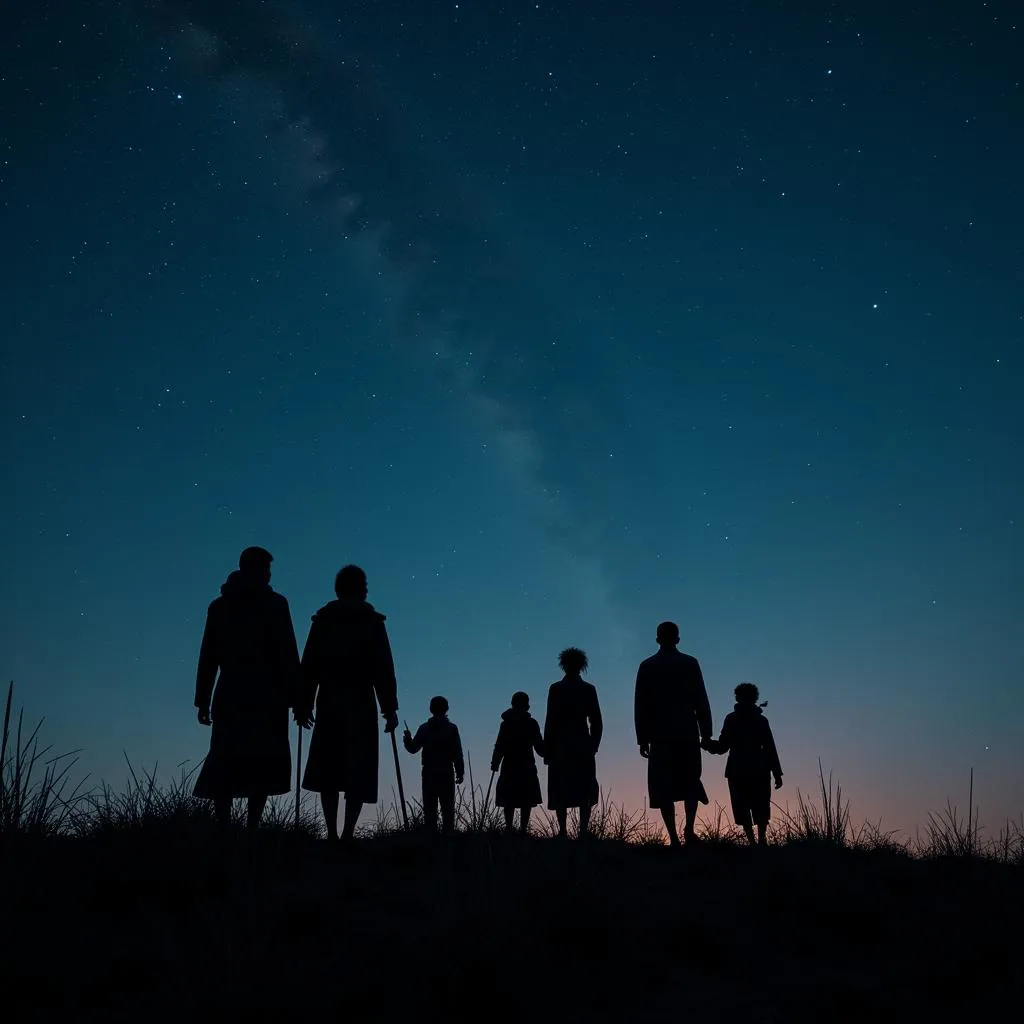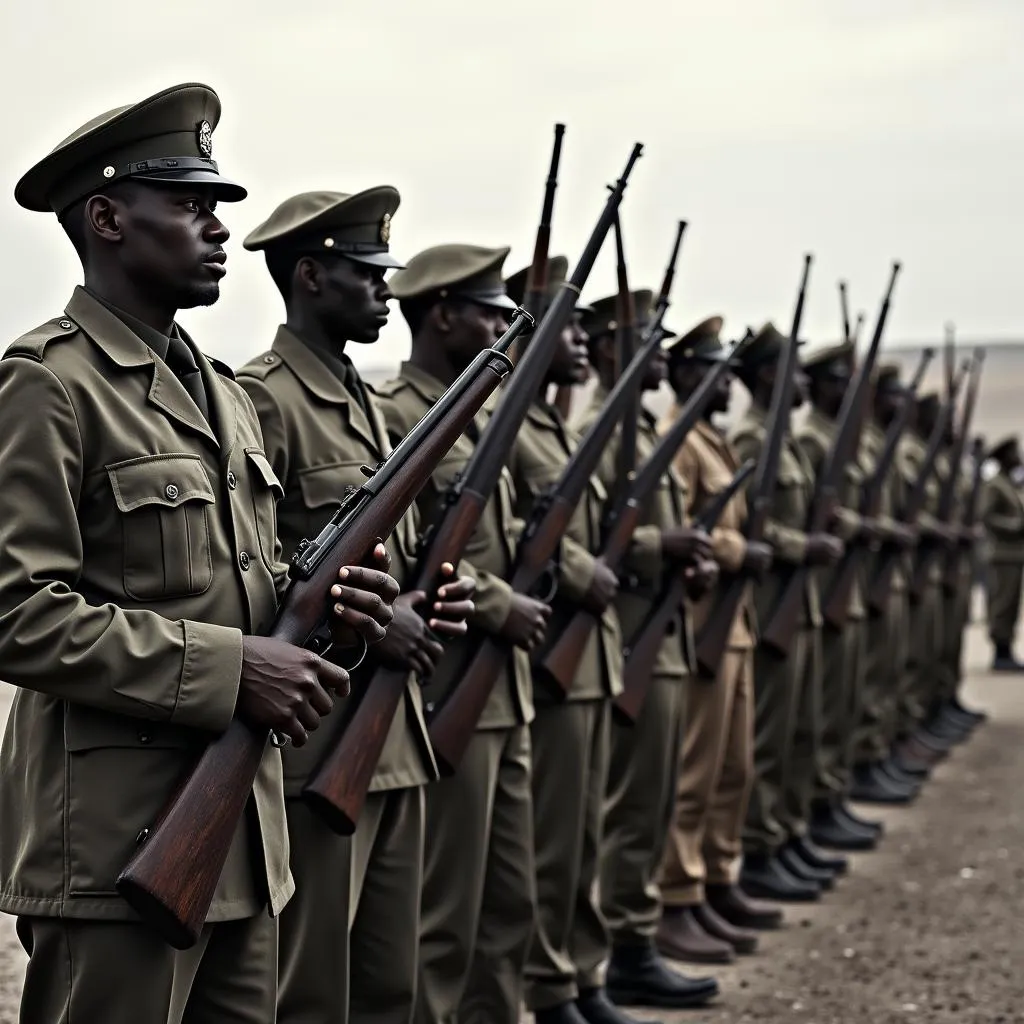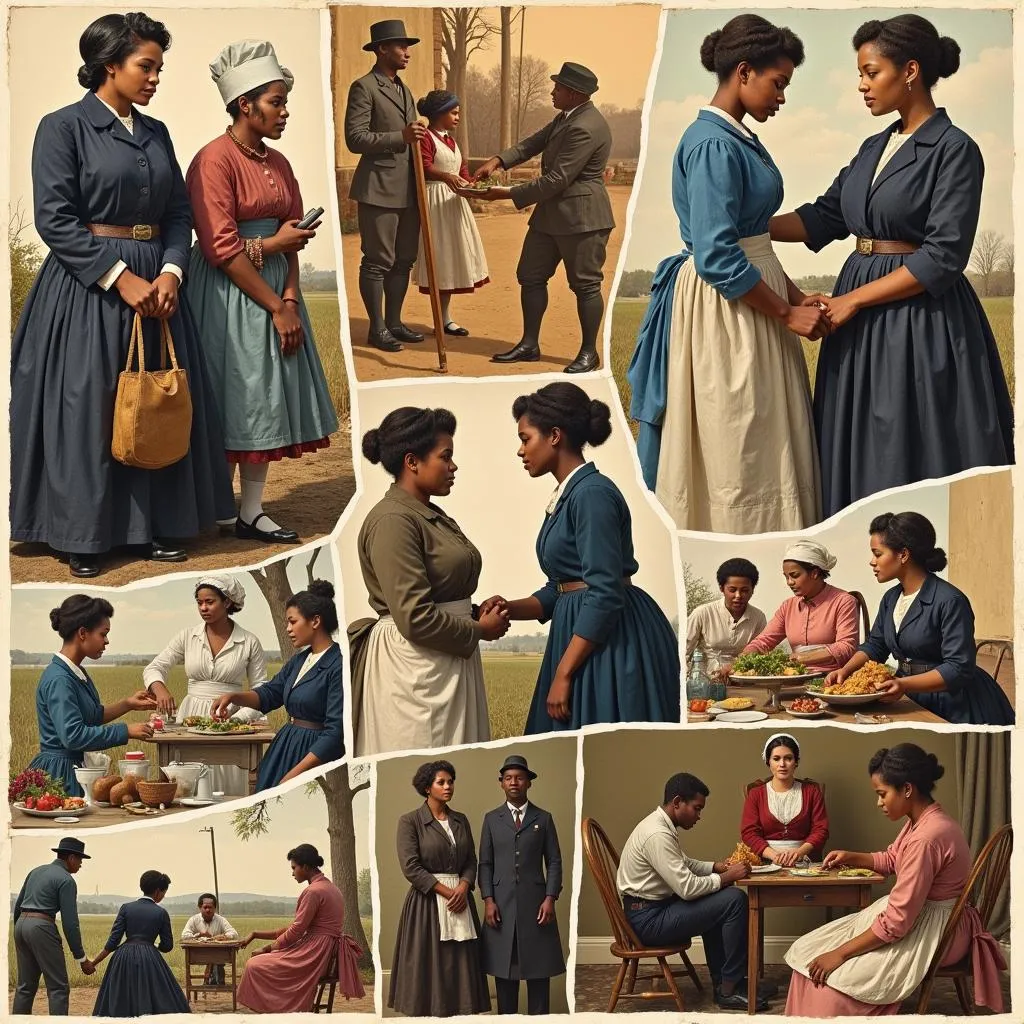African Americans in the Civil War: Fighting for Freedom and a Nation
The American Civil War, a conflict that tore the nation apart from 1861 to 1865, saw the complex and profound participation of African Americans. While the war was sparked by the debate over slavery, the role of African Americans extended far beyond being passive subjects of this debate. They became active agents in their own liberation and contributed significantly to the Union’s fight against the Confederacy.
The Road to Emancipation: From Contraband to Soldiers
At the outset of the war, the Union army hesitated to enlist black soldiers, reflecting the pervasive racial prejudice of the time. However, the reality of the war, the increasing need for manpower, and the unwavering determination of African Americans to fight for their freedom gradually shifted this stance.
The journey began with the concept of “contraband.” As escaped slaves fled to Union lines, they were declared “contraband of war” – property that could be seized from the enemy. This classification, while still dehumanizing, provided a legal loophole for the Union to shelter and utilize the skills of these refugees.
 African Americans Escaping Slavery
African Americans Escaping Slavery
This led to the formation of black labor units, where African Americans provided essential services like cooking, cleaning, and building fortifications. Their contributions proved invaluable, demonstrating their capability and commitment to the Union cause.
The Tide Turns: The Emancipation Proclamation and Black Recruitment
In 1863, President Abraham Lincoln issued the Emancipation Proclamation, a watershed moment that declared the freedom of slaves in Confederate-held territory. While it didn’t abolish slavery outright, the proclamation had profound implications. It officially allowed black men to enlist in the Union Army and Navy, marking a turning point in the war and in the fight for black liberation.
Bravery Under Fire: The Valor of Black Soldiers
The response from African Americans was overwhelming. By war’s end, over 180,000 black men, comprising the United States Colored Troops (USCT), had answered the call to arms. These soldiers, driven by a deep desire for freedom and equality, fought with unparalleled courage and determination.
 USCT Soldiers in Formation
USCT Soldiers in Formation
They faced immense challenges, including rampant discrimination within the army itself. They were often relegated to menial tasks, given inferior equipment, and paid less than their white counterparts. Despite these injustices, they persevered, proving their mettle on battlefields across the South.
From the assault on Fort Wagner, South Carolina, immortalized in the film “Glory,” to the Battle of Nashville, where they played a pivotal role in the Union victory, black soldiers demonstrated their valor and patriotism time and again.
Beyond the Battlefield: The Impact of African American Involvement
The contributions of African Americans during the Civil War extended far beyond the battlefield. Black women played crucial roles as spies, nurses, cooks, and laundresses, supporting the war effort from both within the army and on the home front. Their resilience and unwavering support were instrumental to the Union’s success.
 Black Women's Contributions in the Civil War
Black Women's Contributions in the Civil War
The Civil War, while devastating in its human cost, ultimately led to the abolition of slavery and the beginning of a long and arduous journey towards equality for African Americans. Their participation in the war, both on and off the battlefield, had reshaped the nation’s narrative, highlighting their unwavering commitment to freedom and their rightful place as equal citizens. Their story serves as a testament to the human spirit’s capacity for courage, resilience, and the unwavering pursuit of justice.
FAQs
1. What was the significance of the Emancipation Proclamation for African Americans In The Civil War?
The Emancipation Proclamation, issued by President Lincoln in 1863, declared the freedom of slaves in Confederate-held territories. This pivotal document officially allowed black men to enlist in the Union Army and Navy, marking a turning point in the war and the fight for black liberation.
2. What were some of the challenges faced by African American soldiers during the Civil War?
African American soldiers faced immense challenges, including rampant discrimination within the army, lower pay than white soldiers, inferior equipment, and often being assigned menial tasks.
3. How did black women contribute to the Civil War effort?
Black women played essential roles during the Civil War, serving as spies, nurses, cooks, and laundresses. They provided vital support to the Union Army and their families on the home front, demonstrating remarkable resilience and unwavering commitment to the cause.
4. What was the impact of the Civil War on the fight for African American equality?
The Civil War, while a horrific conflict, ultimately led to the abolition of slavery and the beginning of the long and difficult journey towards equality for African Americans. Their participation in the war irrevocably changed the nation’s course and highlighted their rightful place as equal citizens.
Explore More:
For more insights into the rich history and culture of Africa and the African diaspora, we invite you to delve into these fascinating articles:
Need Assistance?
Have more questions about African history and culture? We’re here to help! Contact us at:
Phone: +255768904061
Email: kaka.mag@gmail.com
Address: Mbarali DC Mawindi, Kangaga, Tanzania
Our dedicated customer support team is available 24/7 to assist you.